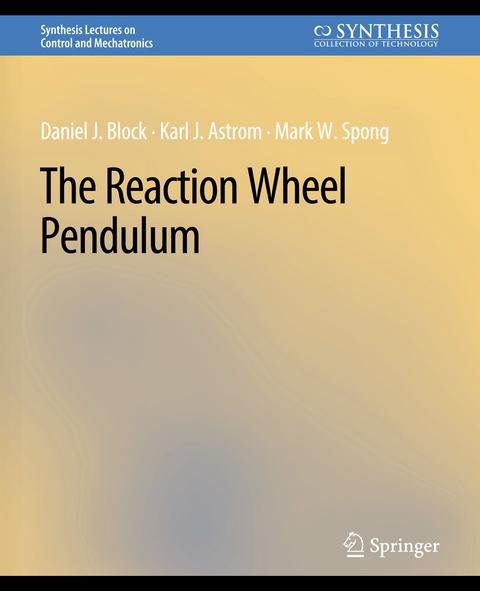
The Reaction Wheel Pendulum
Springer International Publishing (Verlag)
978-3-031-00699-9 (ISBN)
Daniel J. Block is currently Manager of the College of Engineering Control Systems Laboratory at the University of Illinois at Urbana-Champaign. He also is the lecturer for two control systems laboratory courses. Dan received his Bachelor of Science degree and Master of Science degree in General Engineering at the University of Illinois in 1991 and 1996, respectively. Karl J. Astrom was educated at the Royal Institute of Technology (KTH) in Stockholm, Sweden. He worked for 5 years for IBM Research Laboratories in Stockholm, Yorktown Heights and San Jose. In 1965 he became Professor, Chair of Automatic Control at Lund Institute of Technology/Lund University where he built a new department. He is now is Emeritus at Lund University. From 2000 he is part time visiting professor at University of California in Santa Barbara. Astrom has broad interests in automatic control covering both theory and applications. He has coauthored 10 books and more than 150 papers, one paper coauthored by Bjorn Wittenmark was selected for publication in the IEEE book Control Theory: Twenty-five seminal papers. Astrom is listed in ISIHighlyCited, and he has several patents. One on auto-tuning coinvented by Tore Hagglund has led to significant manufacturing. Astrom has received many awards including the 1993 IEEE Medal of Honor and the 1987 Quazza medal from International Federation of Automatic Control. Mark W. Spong is currently Donald Biggar Willett Distinguished Professor of Engineering, Professor of Electrical and Computer Engineering, and Research Professor in the Coordinated Science Laboratory at the University of Illinois at Urbana-Champaign. He is also Director of the Center for Autonomous Engineering Systems and Robotics (CAESAR) within the Information Trust Institute (ITI) at Illinois. Dr. Spong's main research interests are in robotics, mechatronics, and nonlinear control theory. He has published more than 200 technical articles in control and robotics and is co-author of four books. Dr. Spong is Past President of the IEEE Control Systems Society and a Fellow of the IEEE. His recent awards include the Senior U.S. Scientist Research Award from the Alexander von Humboldt Foundation, the Distinguished Member Award from the IEEE Control Systems Society, the John R. Ragazzini and O. Hugo Schuck Awards from the American Automatic Control Council, and the IEEE Third Millennium Medal.
Introduction.- Modeling.- Controlling the Reaction Wheel.- Stabilizing the Inverted Pendulum.- Swinging Up the Pendulum.- Switching Control.- Additional Topics.
| Erscheinungsdatum | 06.06.2022 |
|---|---|
| Reihe/Serie | Synthesis Lectures on Control and Mechatronics |
| Zusatzinfo | VI, 105 p. |
| Verlagsort | Cham |
| Sprache | englisch |
| Maße | 191 x 235 mm |
| Gewicht | 228 g |
| Themenwelt | Informatik ► Datenbanken ► Data Warehouse / Data Mining |
| Informatik ► Theorie / Studium ► Künstliche Intelligenz / Robotik | |
| Mathematik / Informatik ► Mathematik | |
| ISBN-10 | 3-031-00699-2 / 3031006992 |
| ISBN-13 | 978-3-031-00699-9 / 9783031006999 |
| Zustand | Neuware |
| Haben Sie eine Frage zum Produkt? |
aus dem Bereich


